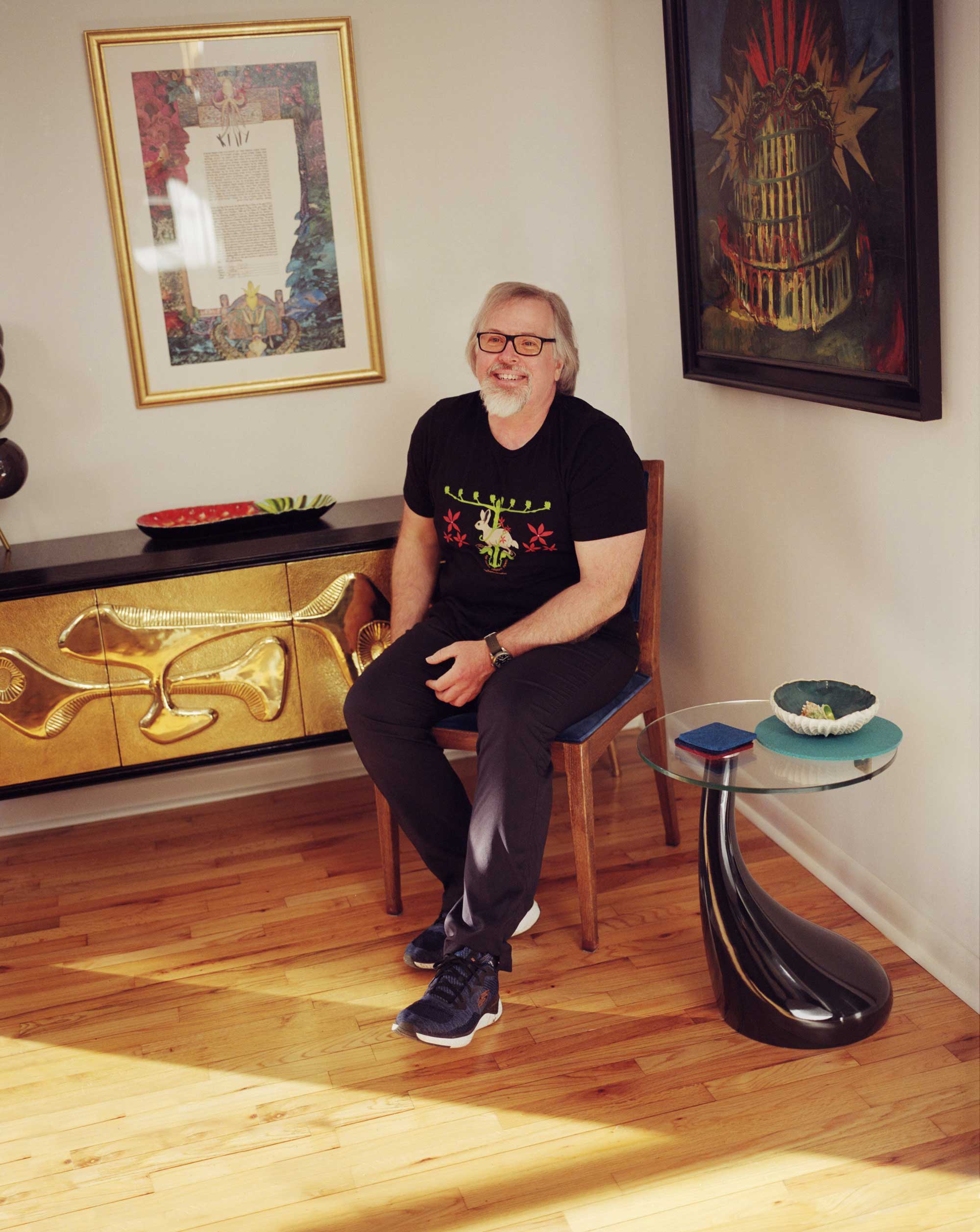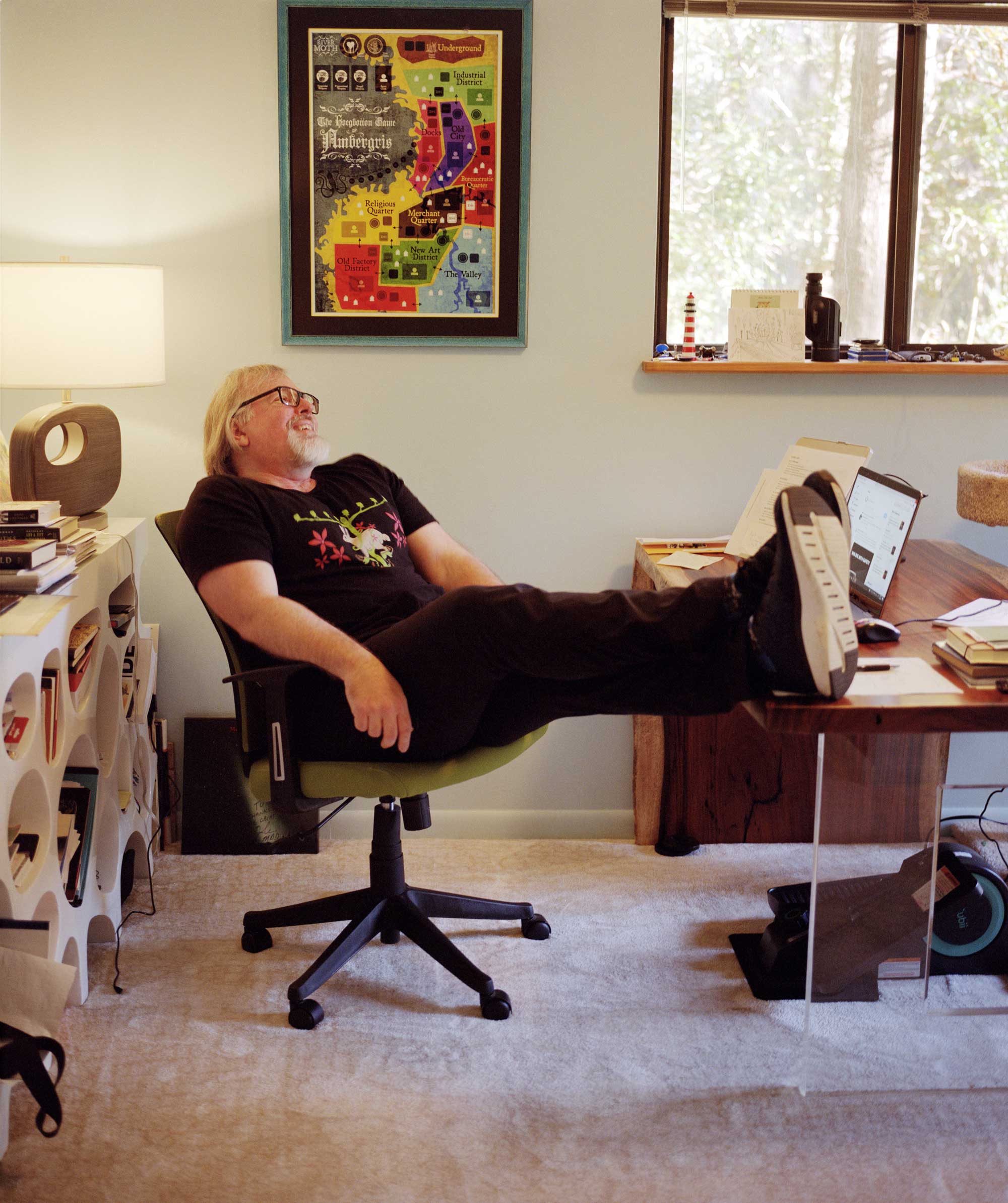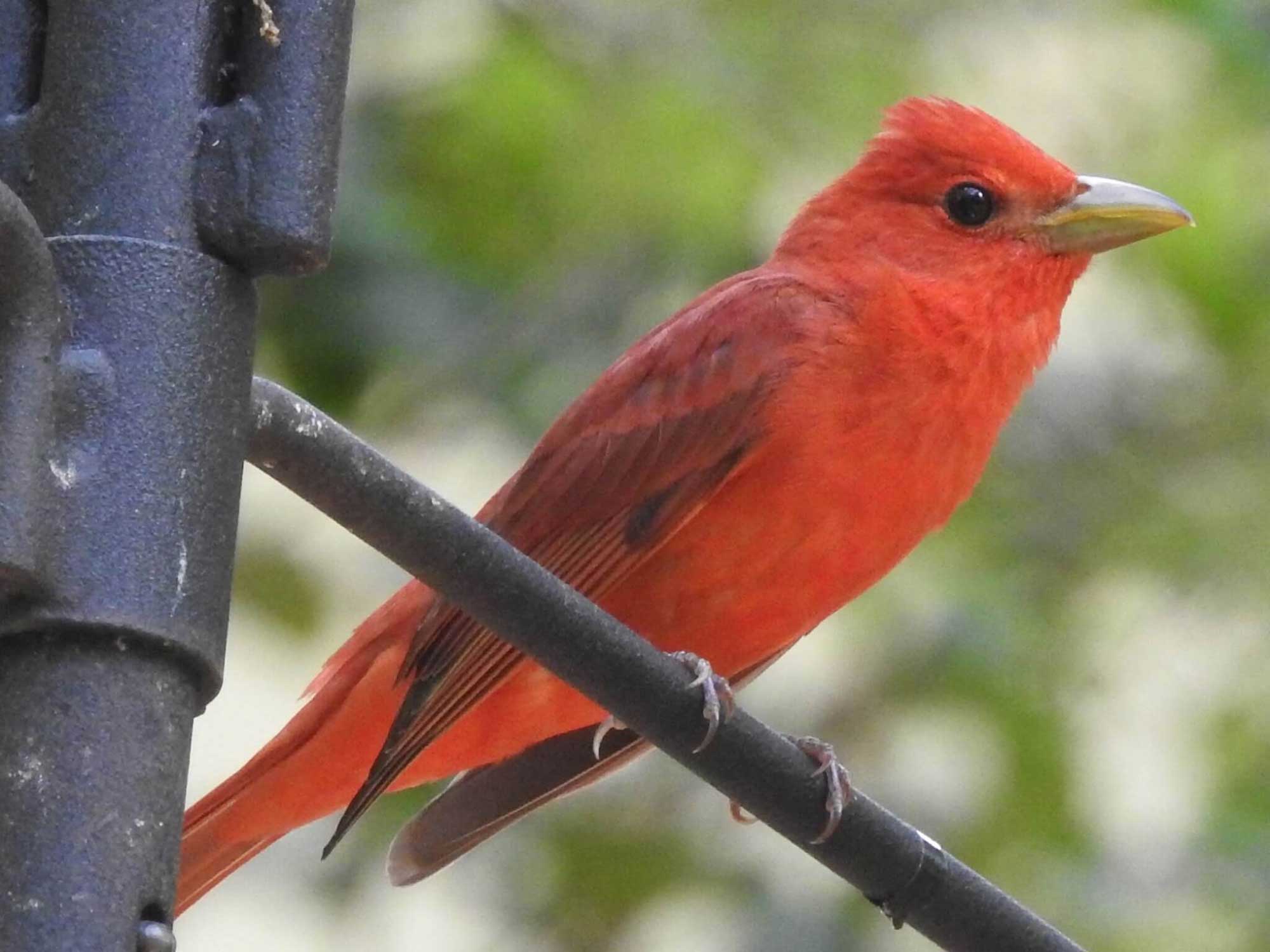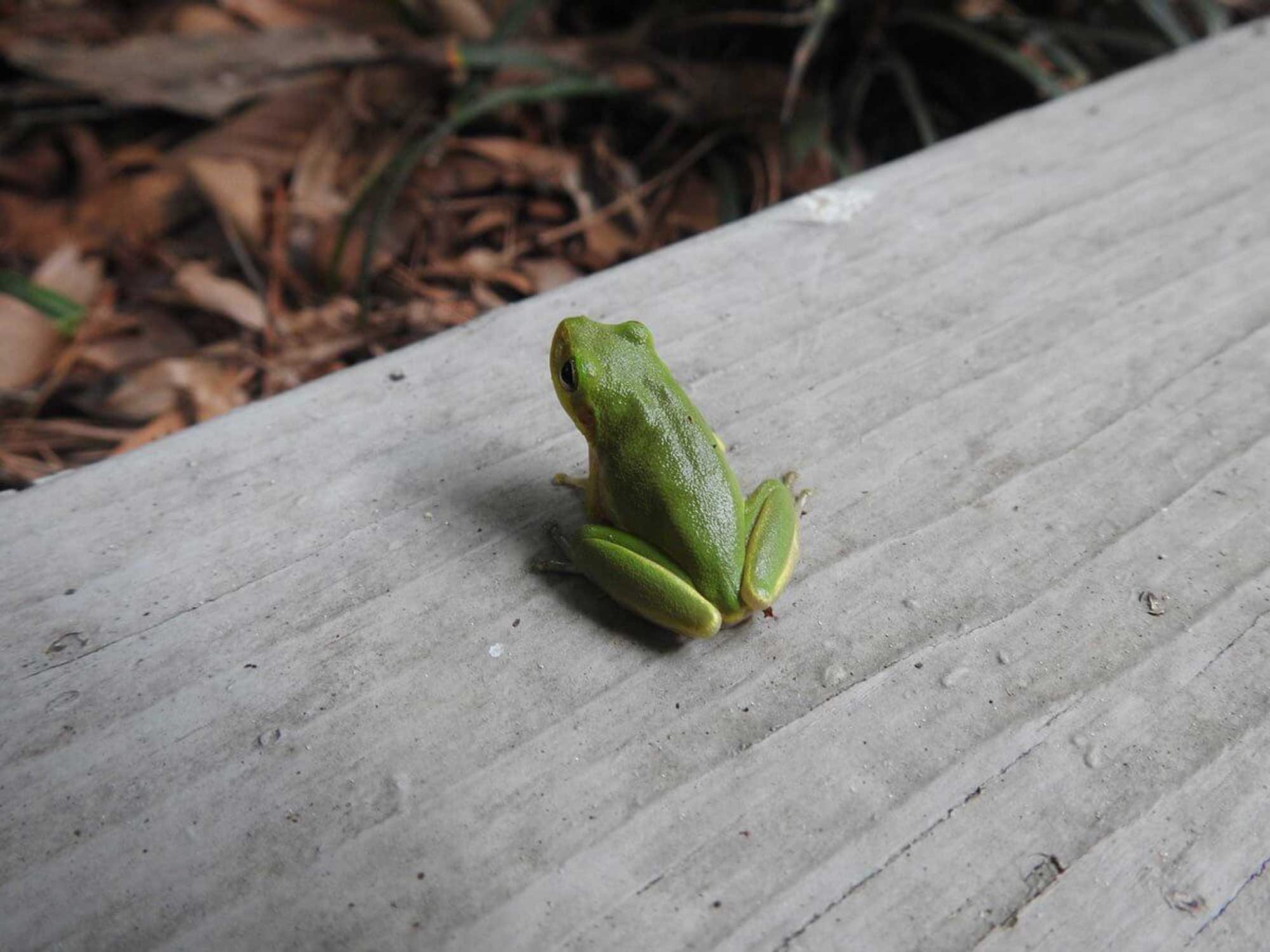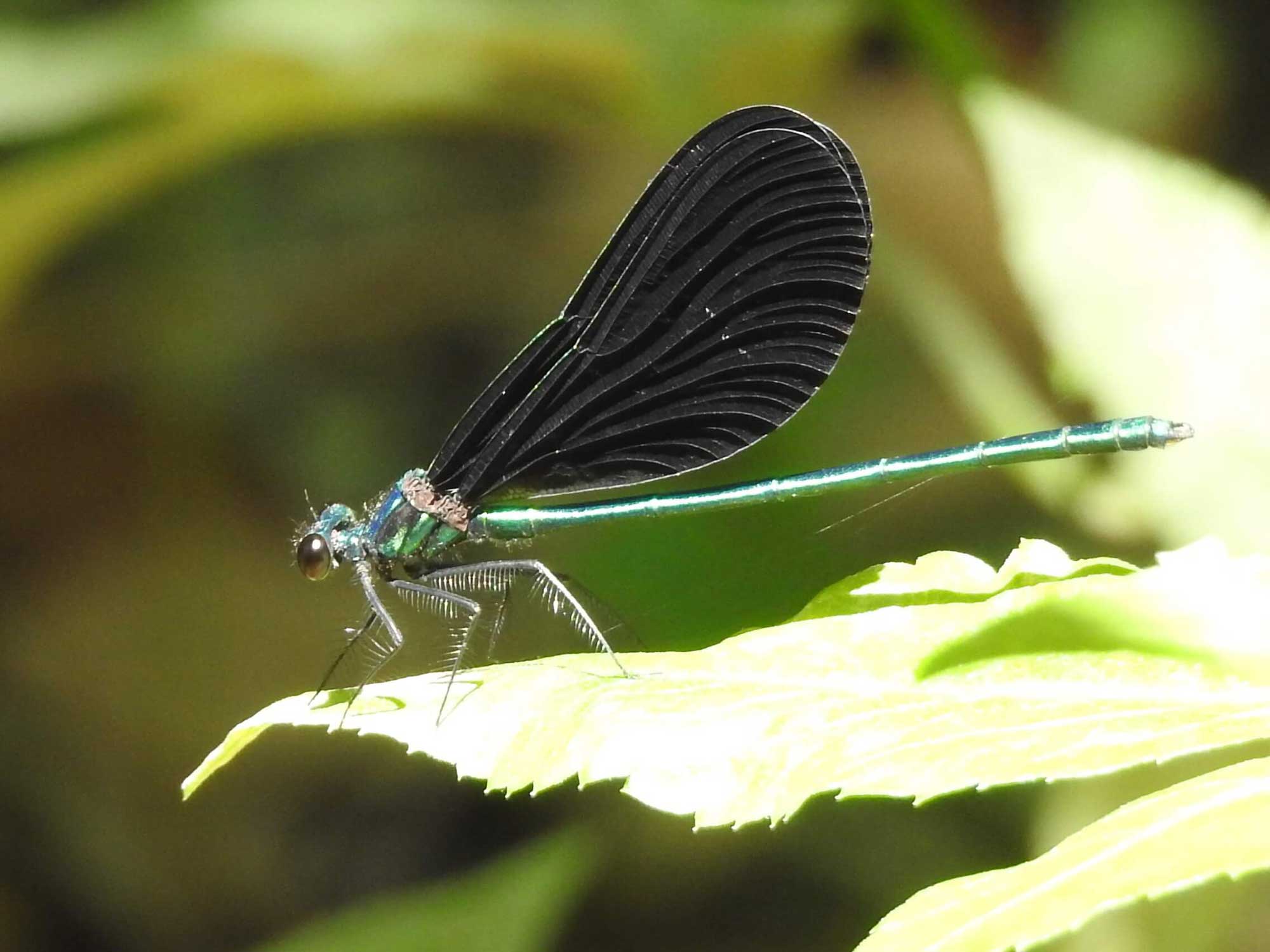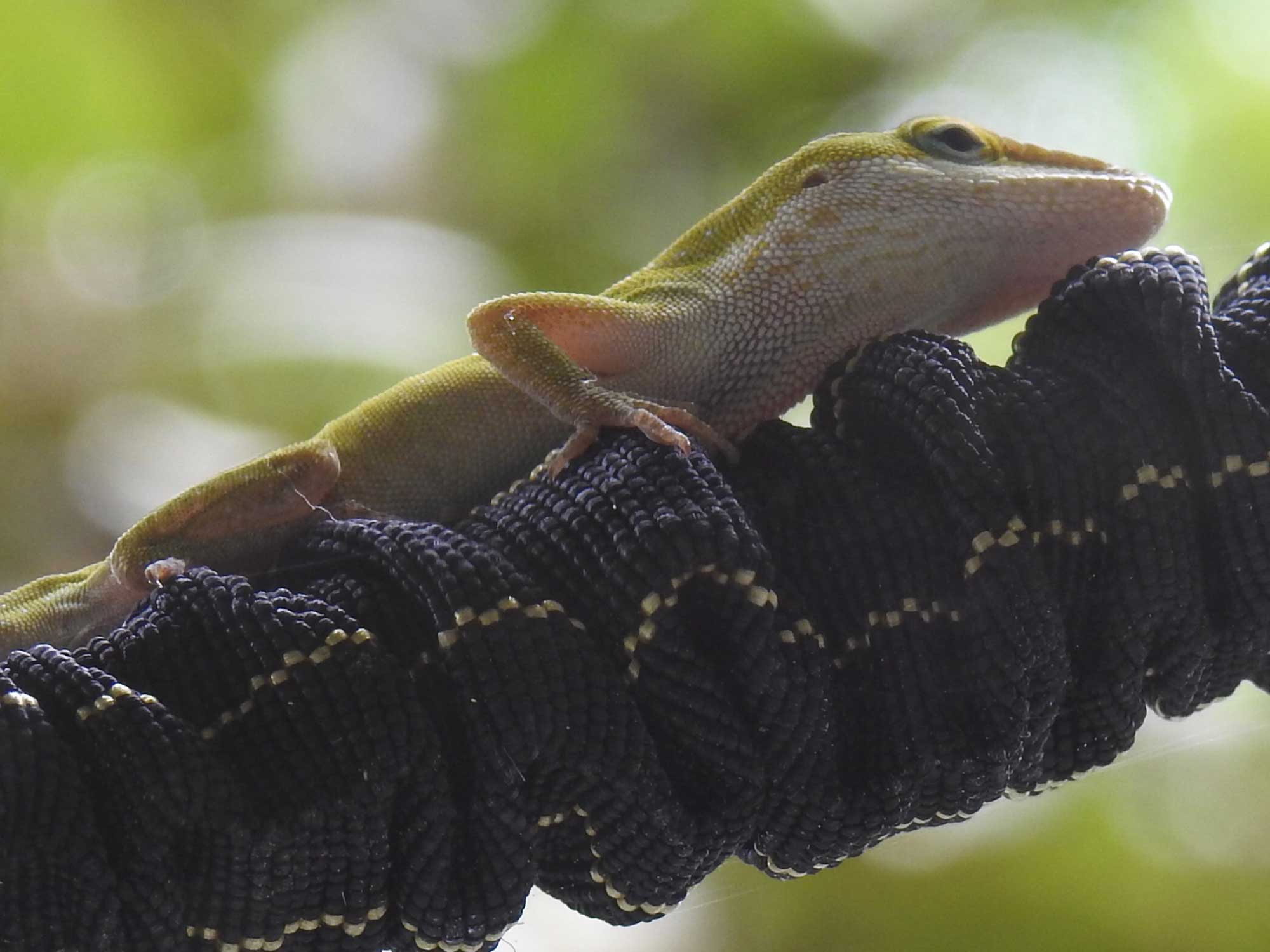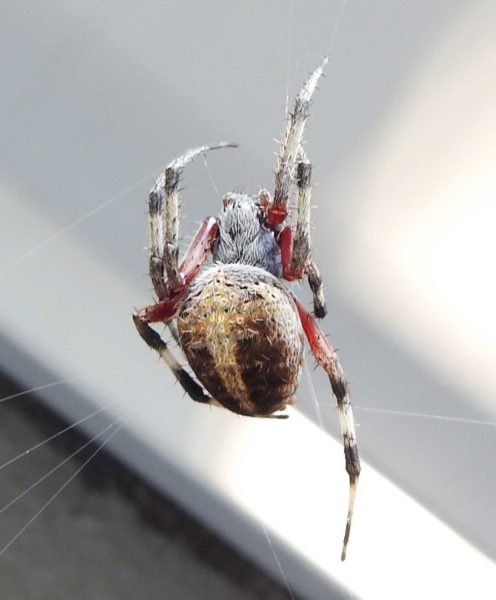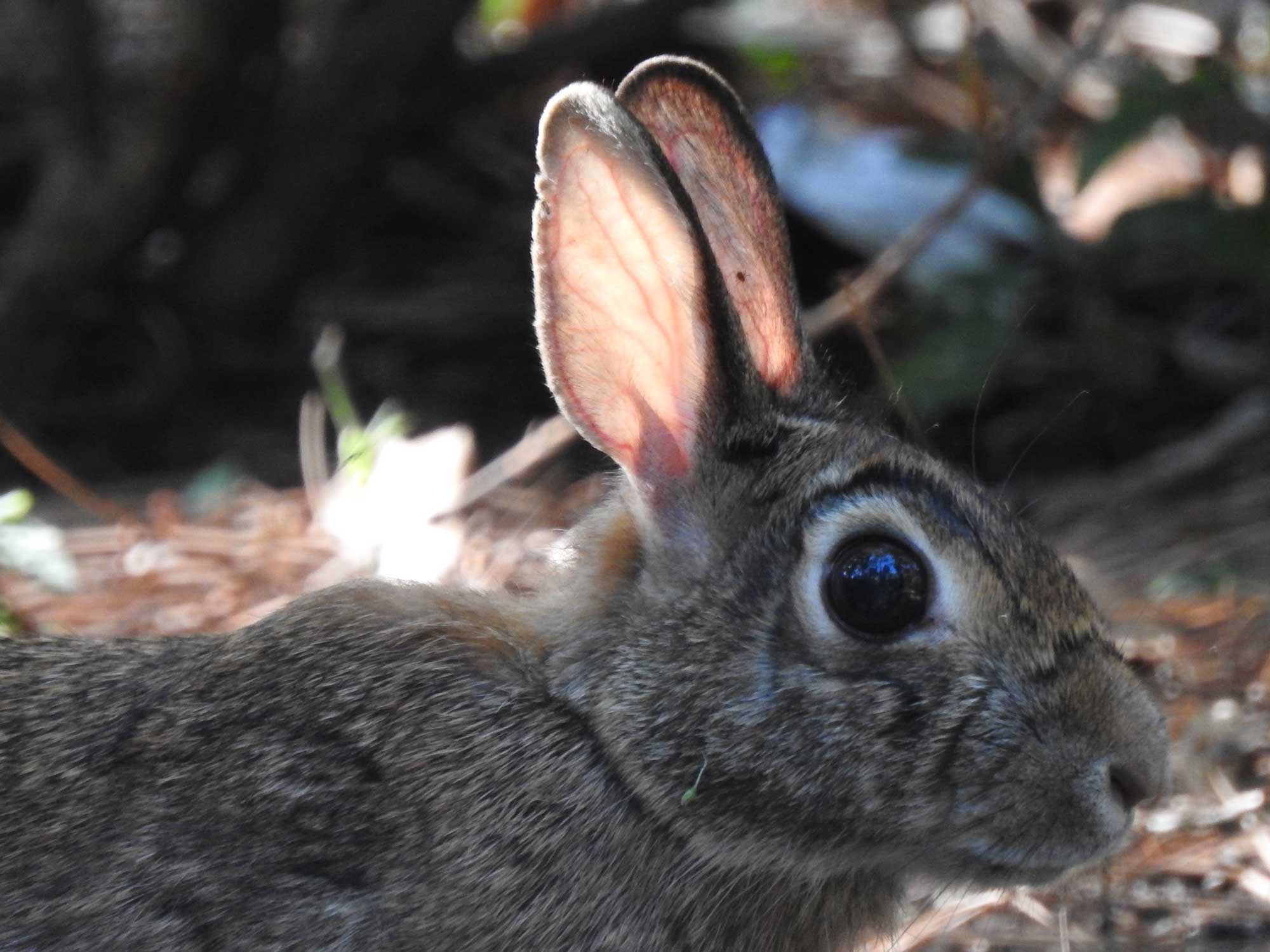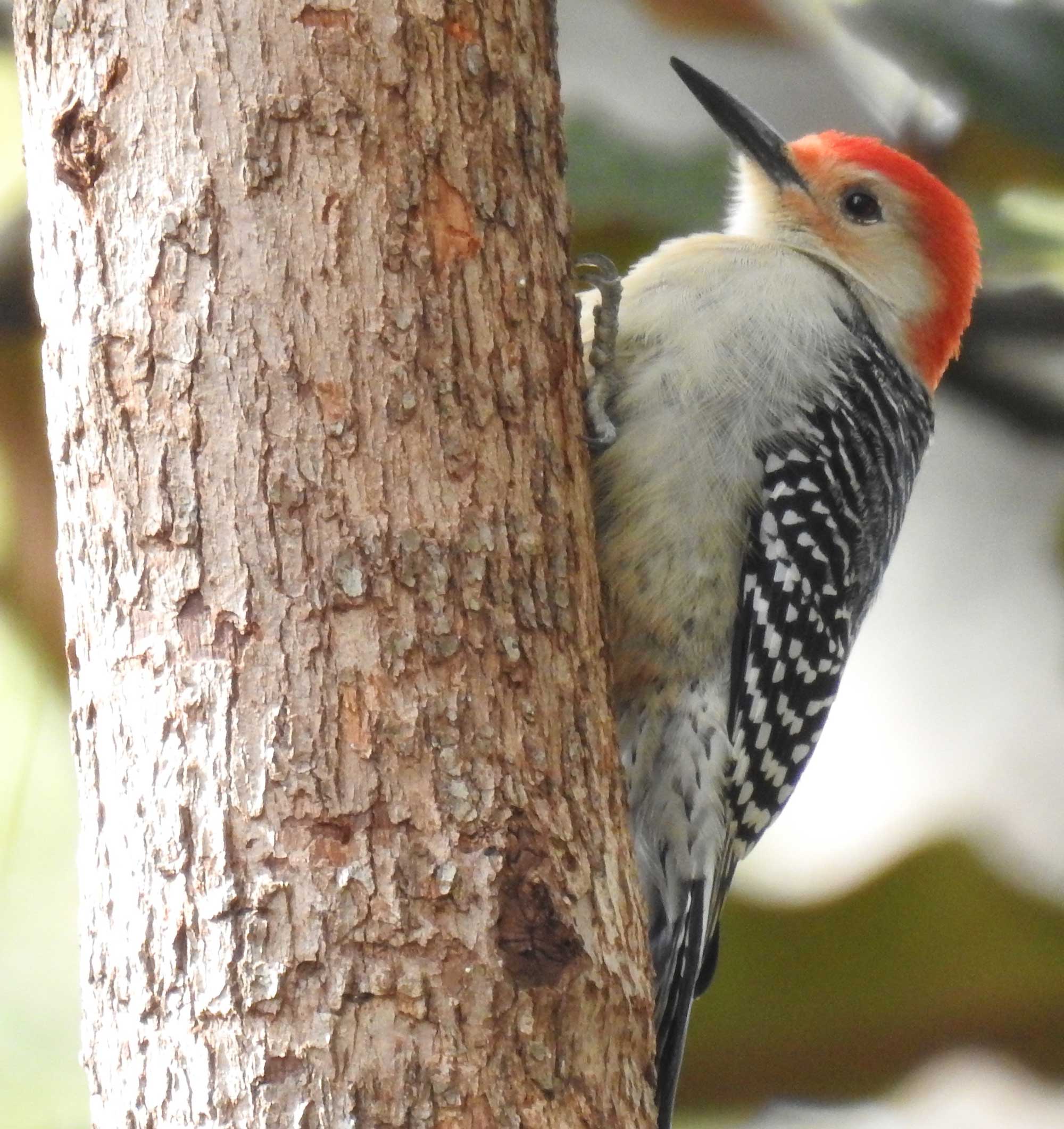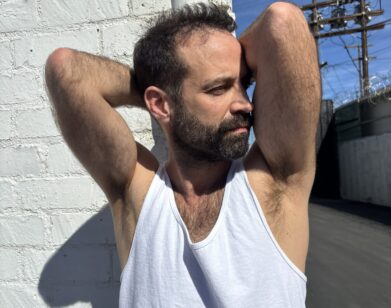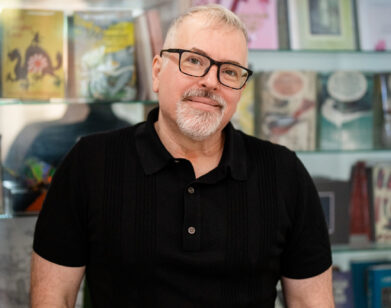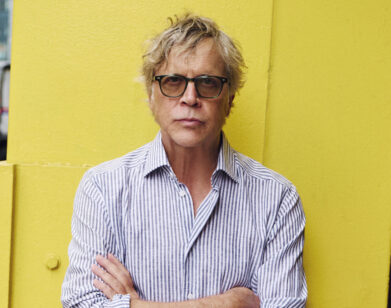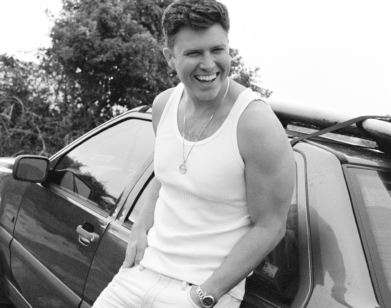LITERATURE
Can Jeff VanderMeer Save Us From Extinction?
A scroll through Jeff VanderMeer’s Twitter account yields all manner of birds, flowers, trees, bird feeders, backyard wildlife, and the occasional portrait of his housecat, Neo. By and large, it seems such joyous, benevolent content that it’s surprising it comes from the same hands as one of the most subversive, experimental, apocalyptic, and politically daring fiction writers at work in America today. Time and again, across a range of genres (always cross-mating with serious literary prose), VanderMeer has tackled the most serious issues of our time with mesmerizing wonder: climate change, biotechnology, terrorism, mass extinction, conspiracy, global catastrophe, and the salvation and horror of science. VanderMeer is best known for his fantastical 2014 Southern Reach trilogy (the first book, Annihilation, was made into the 2018 Alex Garland film starring Natalie Portman). Throughout his career, the 52-year-old novelist has made environmental issues a key theme and plot point to his stories—so much so that such clever neologisms as “cli-fi” seem invented for his own shelf in the bookstore.
This spring, his latest novel, a neo-noir thriller called Hummingbird Salamander, investigates ecoterrorism, wildlife trafficking, centuries of human-industrial irresponsibility, and extinction in a tough, pithy, and wickedly compelling narrative roller-coaster. The book centers on one of the most intriguing unreliable narrators of recent fiction, a bodybuilder and disgruntled security analyst who goes by “Jane.” She mysteriously receives a key to a storage unit that puts her in possession of a box containing an extinct taxidermied hummingbird and a note that says simply (and un-simply) “Hummingbird Salamander —Silvina.” So begins a quest where even the fittest (see: our gym-rat Jane) are unlikely to survive. Bleak and sharp-tongued and vacuum-packed with wisdom, VanderMeer can capture the brink like no other contemporary writer: “That month the southern white rhino and a species of pangolin had gone extinct. Wildfires in five countries meant animals were crawling to the side of roads to beg people speeding by in cars for water. People were poisoning vultures and shooting bats out of the sky, scared of pandemics. To care more meant putting a bullet in your brain. So, like many, I learned to care less.”
The thing is, VanderMeer can’t seem to learn to care less. Another of his passions involves his ongoing project of “rewilding” his half-acre yard on the edge of Tallahassee. In order to combat natural-habitat destruction, VanderMeer has reintroduced native plants and trees to encourage the return of local wildlife. The fruits of VanderMeer’s tweets spring directly from the myriad animals, insects, organisms, and flowering flora that have returned to his homegrown micro nature-preserve. (“Right now, during migration season,” he reports, “we have about 300 yellow-rumped warblers in the yard and another 400 pine siskins, along with ruby-crowned kinglets, Baltimore orioles, orange-crowned warblers, hermit thrushes, cedar waxwings, etc.”) Will VanderMeer save our planet? Can it even be saved at this point? These are the real mysteries of our era. This past February, after a bizarre bout of freezing weather stormed across the southern edge of the country, VanderMeer talked with his friend, the author Carmen Maria Machado, about writing, living, and staying pessimistically hopeful on this ball of uncertainty called Earth. —CHRISTOPHER BOLLEN
———
CARMEN MARIA MACHADO: What’s the weather like in Florida?
JEFF VANDERMEER: It’s just so bizarre. It’s probably like this in a lot of places, but we keep going from freezing weather to temperatures in the 70s. The plants and animals don’t know what to do. And now it’s rainy as hell in a period when it’s usually dry.
MACHADO: We’re in Pennsylvania, and poor Val [Howlett, Machado’s spouse] is the plant person in the family. She’s been looking back at her notes and saw that last year our last frost was in May. It’s been hard to plan planting with the weather being so insane. This is actually
a good transition into your novel.
VANDERMEER: My cheery personality is reflected in my fiction. [Laughs]
MACHADO: I just read a tweet this morning talking about this unprecedented weather pattern and somebody was like, “It’s not unprecedented, it’s climate change.” It’s not like it’s some freak occurrence.
VANDERMEER: Here in Tallahassee, it’s weird to see the overlay of the new weather with the old systems. We’re not adapting fast enough and the disconnect is becoming more and more clear.
MACHADO: It’s a bit like watching this pandemic unfold. We’re botching it all up, and you can’t help but feel like it doesn’t have to be this way. Do you think you’re a cynic about wildlife and the climate crisis?
VANDERMEER: I think that fixing the climate crisis should be more ingrained in our discussions and it’s not. Even in fiction, I see a lot of green-tech solutions that are totally divorced from actually dealing with what’s going on in the landscape. The other day I saw that Elon Musk had gone from chastising the oil industry to being like, “We need to mine for our SpaceX platform so that we have energy for our rockets.” Those are the kinds of things that get to me. One reason I push so hard for wildlife and for habitat is that I just don’t think we can make it through without them. We can’t just green-tech our way into some kind of solution. We have to change how we actually interact. And I do think we can all make small changes in how we do things that can really help us. In that way, I’m not cynical. People ask about hope all the time, which in a very absurdist way cracks me up because there’s always this question of, “Is it too late?” And it’s like,
“Well, what are you going to do if it’s too late? You really have no choice but to try to do the best things possible to get out of this.” Next cheery question!
MACHADO: The environment obviously affects me, but it’s not the focus of my work. But when I get asked about things like sexism, people always say, “What are the solutions?” And I just have this sense that we’re fucking it up and
I honestly don’t know what to do about it. So I guess it’s good to at least pretend there’s a solution.
VANDERMEER: I’ve recently gotten more involved in local politics and activism, and when I’ve worked at that level there’s been significant change. That makes me hopeful. I do think there can be a groundswell of change that starts at the local level because there’s more control there. There’s this whole big, vague thing called the climate crisis. But then there’s the localized thing in your hometown or your neighborhood that you can actually grasp to effect more change. But I hear you. On a lot of these issues, it’s like two steps forward and then three steps back, and then four steps forward and then back again.
MACHADO: You have this new novel out. Are you the kind of writer who’s already at work on the next project?
VANDERMEER: Weirdly, I’m still working on Hummingbird Salamander because I’m doing an ancillary tech build-out from some of the things in the book. We’ve been creating stuff in the vein of a utopian commune idea that’s in Hummingbird Salamander. It’s a utopia that gets all kinds of messed up in the process of trying to do something environmental. I’m playing around with the imagery and creating some pieces that are an extension of the story. And then I’m working on a novella for an upcoming collection along with a YA novel. There’s usually a storm where I’m suddenly working on a lot of things at once. That’s probably why people think I’m prolific. But then I go through long periods when I don’t write at all.
MACHADO: I am exactly the same. People are like, “You must write all the time.” And I’m like, “I don’t write most days.” Then at some point, a fever overcomes me and I just go. This weekend I was in a zone where I wrote four different pieces in one sitting. And then I’ll spend weeks just playing video games.
VANDERMEER: Or edit for weeks. I can always dive back into the dream of the story with edits. As long as I get the rough draft out there first. That usually takes the most effort.
MACHADO: For me, the first draft is the hardest, and then I find editing very joyful and playful. I get to return to the thing, and then I’m excited by what I created, and then I get to build out from there, which feels a lot more doable. I hate to be like, “The blank page is my enemy,” it’s not that. It’s just that at some point, when I’m starting from nothing, I’m like, “Hmm…” But once I get something in my craw, I’m like an oyster. The pearl begins to generate, but I have to have the sand first.
VANDERMEER: I actually finished writing a short story this morning. The weird thing is that it’s just the backstory of a character in another story. But I had to write it out, even though it will likely wind up being summarized in this other book. Somehow it didn’t seem like it’d be authentic unless I actually wrote it. I don’t know if that’s a symptom of having been in isolation for the past year.
MACHADO: How did you start writing Hummingbird Salamander?
VANDERMEER: I started it in 2017. It was one of those books that I kind of touched on when I was doing something else. I would go back to it as it began to accrete. It was kind of shocking to go back and look at the notes for the rough draft when I had the final arc in hand, because it’s much more of a noir book now. I get this scared feeling where it’s like, “Did I leave something out that I should have put in, but forgot to because it was in this notebook?” I might need to stop looking at my old notebooks.
MACHADO: When did you start writing? Were you a big reader as a kid?
VANDERMEER: I really was. I blame my parents for that—they read me illustrated Blake and all kinds of English children’s classics. We were in Fiji— my parents were in the Peace Corps, and it’s in the British Commonwealth—so I got a lot of stuff that isn’t well known in the States like Paddington, Asterix, Tintin, and these awesome comic books of Indian classics like the Ramayana. They influenced me a lot. Fiji was also full of birds, so I kept a list of the birds I saw. Then I started writing stories about birds. I’d read Aesop’s Fables and then rewrite the ones about birds from memory. And I just kept writing after that—including a lot of very bad poetry. I was only 6 or 7, so I’ve forgiven myself by now. Eventually, I started writing short stories and then novels, but I never could remember a time when I wasn’t writing something. I never really wanted to do anything other than write.
MACHADO: What about film? Did films influence you as much as books did?
VANDERMEER: The 1978 version of Invasion of the Body Snatchers still holds up for me as a really horrific and thought-provoking movie. When I saw that human-headed dog the first time, I just about lost it. That image and others definitely got into my work. Do I believe in translations from other media? I do. I’m often watching films and thinking, “Wow, that’s an interesting effect or way of framing or cutting a scene.” Something about the cinematography or structure makes me sit up and take notice. Then I think, “How can I translate that effect into fiction?” And that’s also informed by having done amateur translations from Spanish into English, and inhabiting that effect, way back when I still had a bit of fluency in Spanish. Once you’ve inhabited one kind of translation, you begin to have a sense of how you might do it through other media. Film to fiction is often a construct—you can’t translate literally—but in trying to find the key to that, you wind up somewhere interesting. For me, a good example is how all the dialogue from my novel Annihilation is repurposed in the next one in the trilogy, Authority. Any time the main character is walking down the corridors of the secret agency, any incidental dialogue is from Annihilation, which some readers won’t notice, but others will hopefully feel a sense of déjà vu and be creeped out. I got that idea from a scene in the movie The Shining where a TV is on but there’s no cord, so how could it be on? It’s one of those things that puts you on edge, because as you’re watching the movie you know something’s wrong, but you can’t at first identify it as “no cord,” especially now, when no cord is meaningless in terms of tech. But thinking about that led me to the ghost dialogue in Authority.
MACHADO: You’ve been “rewilding” your home in Tallahassee. Did that enter your new book?
VANDERMEER: I’ve had a real education the past two years in terms of rewilding our yard, learning a lot about native plants, understanding how this all fits into the bigger picture with regard to habitat resilience and climate crisis. The character in Hummingbird Salamander hasn’t thought about these things. She lives in a nice suburban neighborhood, has access to all the things she needs to have a nice life, and hasn’t had to really think about this thing that’s encroaching until she gets this bizarre note from someone who’s probably dead and who has been much closer to environmental issues. And then she falls into this kind of tunnel with all these issues. It turns out she’s in conversation with this woman, Silvina, who’s an ecoterrorist. I had to really step outside of myself to build the plot, which was difficult because I’ve actually become very obsessed with the issue of rewilding. I had to be careful that I wasn’t just channeling something in myself into the character in a way that wasn’t helpful. I went back to my mindset before Trump, which created the urgency for me. That’s one thing I do a lot. I try to inhabit the character when I’m just going around doing daily things, if possible, and think about how that routine would be different if it belonged to the person I’m writing about.
MACHADO: You’ve also written a thriller, so the character is uncovering information at the same time that the reader is. There’s a different kind of learning curve than there would be in another literary genre.
VANDERMEER: Yes, the thriller format allows a different kind of complexity. Because the mystery is environmental, it allows me to put in a lot of stuff that would just be background in a different kind of book. But because it’s a mystery, it’s at the center. That information is what makes it alive. I am also cautious about putting information in the wrong place in a book. Like, if there’s something I personally agree with, I’m more likely to try it out as something a character who I don’t like as much believes. I don’t know why, maybe just to test whether or not what I actually believe makes sense. And I really do think with the climate crisis that novels are laboratories.
MACHADO: You mean, you can test out experiences and actions that you couldn’t in any other format?
VANDERMEER: Yes, even in terms of activism. This novel came, in part, out of talking to an environmental-activist class where there was no way they could even discuss issues on a theoretical level. Unless you’re willing to take a step that separates you from society, there are a lot of things that remain entirely abstract with regard to environmental activism. I think novels are a good way to explore that. There are things that the activists in the novel do or say or believe in that I don’t believe in, but I think they’re useful to put out there in some way.
MACHADO: I love the depiction of your main character, Jane. I loved her body and all the passages about weightlifting. When I was reading it, I thought, “Man, you never read female characters described this way.” It was a weird little pleasure in a sea of pleasures.
VANDERMEER: I always have to relate somehow to my characters. Her being a wrestler and a bodybuilder is very different from my going to the gym, but it gives me a basis for the social aspect of it. I’m glad it worked. Weightlifting does add some uniqueness, especially juxtaposed with the fact that she’s a systems analyst.
MACHADO: That unusual sense of character fits very nicely into the propulsive energy of this narrative you build.
VANDERMEER: I’ll be writing a book like Annihilation or Dead Astronauts, and I’ll think, “There’s a more direct way to tell this story, but it doesn’t work for the character.” But for this novel, the proportions are different, and I did go for that propulsive narrative you just mentioned. It’s not what people usually read me for, so I’ll be interested to see what they think.
MACHADO: My favorite writers tend to surprise me. I also like writers who return to the same material over and over again, like they’re trying to get it right. But I do find pleasure in that attempt at the new.
VANDERMEER: I find it fascinating when writers return to the same subject over and over again. There starts to become this meta-narrative about the author exploring some obsession they have. But also, when I read an author who does that, I always worry that they’ve already found the perfect balance and the next book won’t work. I worry about my own sell-by date, too, for that matter. Is it coming up? I have two more novels I want to write after this.
MACHADO: I don’t know if you’ve ever seen the TED talk that Elizabeth Gilbert did years ago, where she discussed the concept of artistic genius and how it’s become kind of warped. She has this intense moment where she says, basically, “Every day I wake up with the thought that perhaps my greatest accomplishment is already behind me.” When I watched that, I was like, “Holy shit. Oh my god. I’m just drinking my coffee, Elizabeth Gilbert. Give me a fucking break! It’s too early for this sort of thing.” But that’s a real fear. As a writer, it’s a bit like what we were saying about environmental activism. You simply have to keep going and keep pushing as if you don’t know that the goal is impossible or already behind you.
VANDERMEER: Yes, I might have thought about that quite a bit during this last year in isolation!
MACHADO: What are you looking most forward to about Hummingbird Salamander coming out?
VANDERMEER: I’m looking forward to reading it aloud. Some books really do read great aloud. Annihilation, I think, reads great on the page, but if I read more than a couple of pages of it, it’s fairly dense. Instead, I used to just tell humorous anecdotes and do a short reading. But this one I’m excited to read different parts of in my voice. It really does feel like the calm before the storm.
———
Special Thanks: William Blake
Photography Assistant: Maia Boboia

